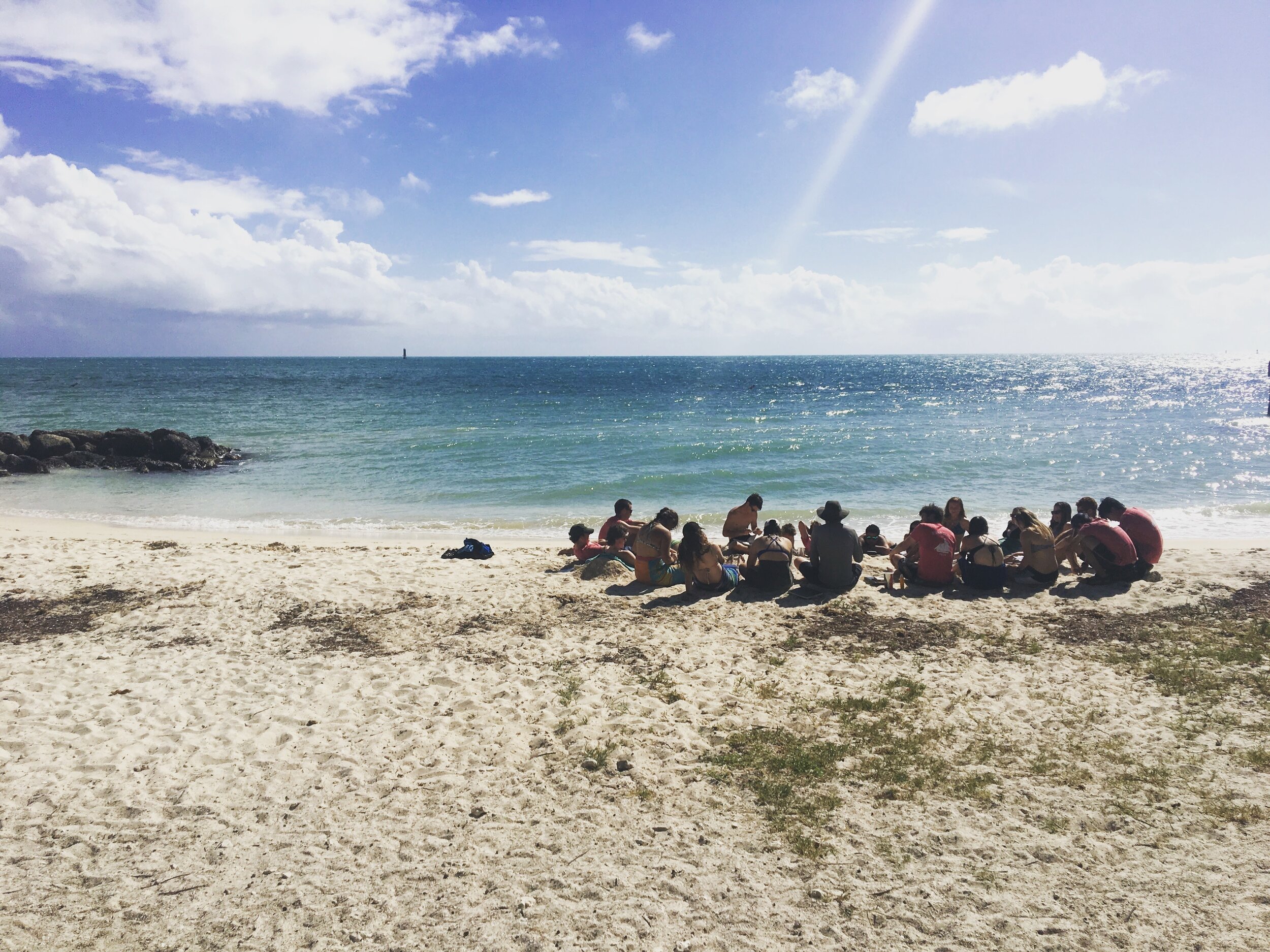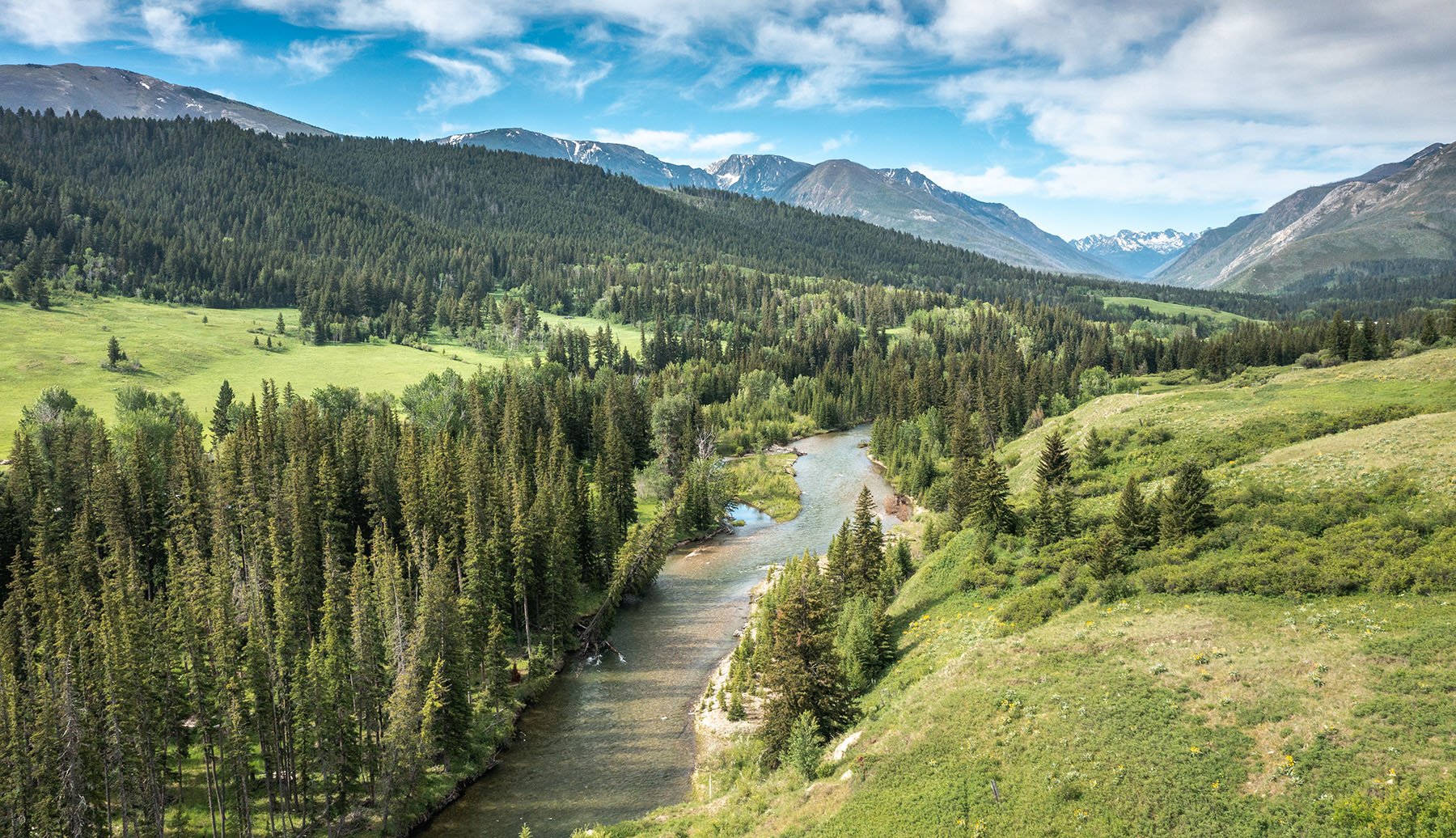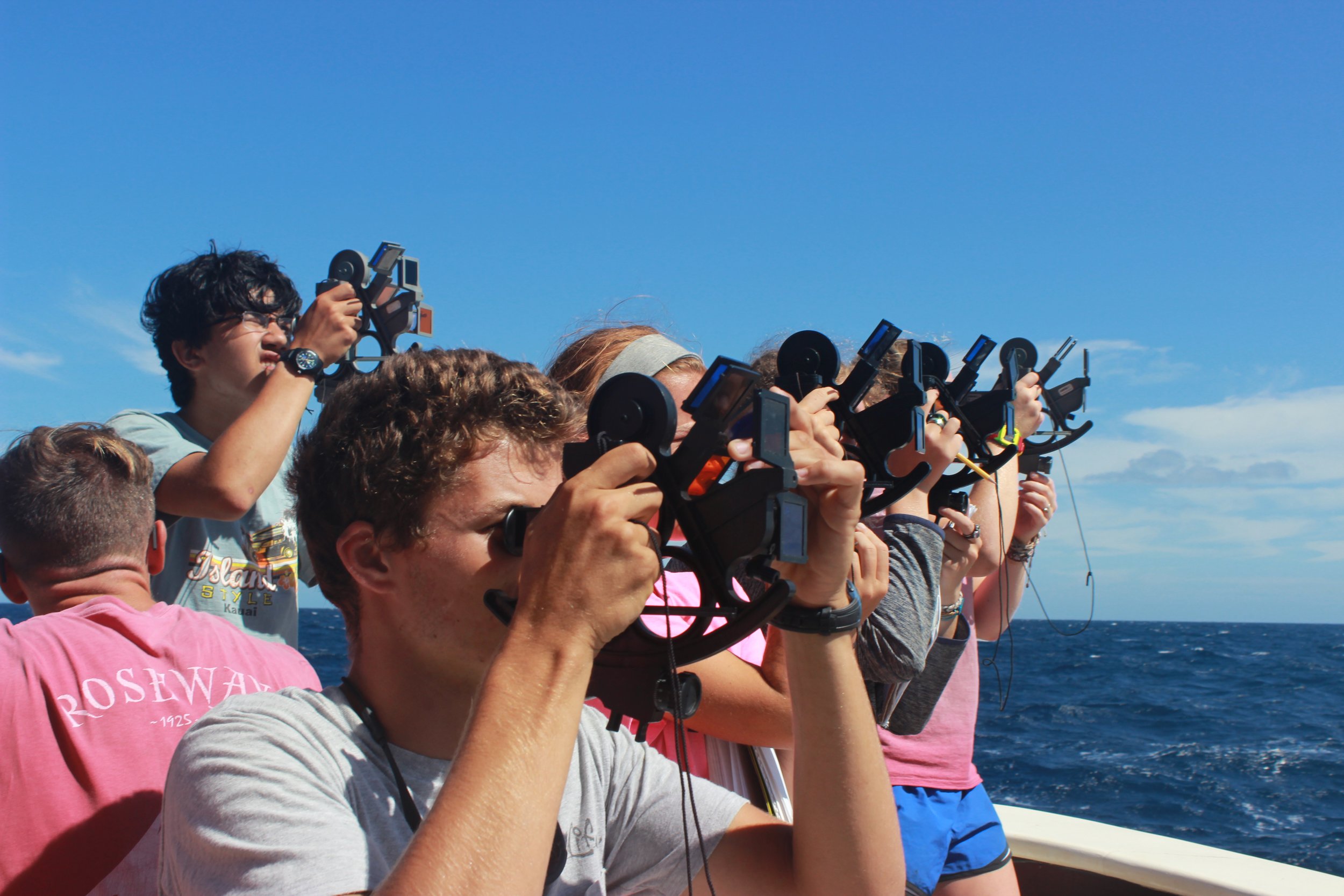
Not your ordinary classroom
Learn by Doing from Teachers Who Have Done It.
At the Planet School, exceptional students spend their final two years of high school taking on problems like climate change, human civilization design, and economic inequality.
Examples of projects that students will work on include:
Launching a pop-up business as they study economics.
Conducting oceanographic research while living aboard and learning to navigate a tall ship.
Managing a working farm while investigating our global food production systems.
Constructing a building as part of a course on urban planning.
Planet-Level Design Thinking
The goal of the Planet School is to equip students with the academic, interpersonal, and leadership skills to think about, discuss, and take action on “planet-sized” problems. This happens through hands-on, experiential learning that is unparalleled in its investment in student agency and curiosity.
Students work alongside world-class faculty to operate and expand the school’s physical and human systems—the Planet School itself is affected by the decisions students make. This is particularly true on the rural campus, where students have the opportunity to design and build a community from scratch.
We have observed that teenagers are, generally, undervalued in terms of what they can contribute to our societies. Planet School students have usually spent their youth as change-makers within their communities, leaders amongst their peers, or have participated in extracurricular activities that simulate real world systems (e.g. Model UN). The Planet School gives these students the opportunity to spend their final two years of high school amongst like-minded visionaries who are ready to stop simulating and start building the future they dream of inhabiting.
Three Campuses, Unlimited Possibilities
Ocean Campus
Students begin their Planet School experience by sailing through each of the five Great Lakes conducting research on the largest freshwater ecosystem on Earth. This voyaging component acquaints students with the self-sustaining community that is a sailing vessel and provides unparalleled opportunities for leadership and team work, preparing them for their forthcoming work on the land-based Planet School campuses.
Students return to the sailing vessel before graduating to navigate the ship from the Atlantic Ocean back to Detroit via the St. Lawrence Seaway. This culminating voyage tests everything they have learned, since they will need to complete it without the aid of GPS.
Urban Campus
Detroit is at a remarkable moment in its history. Once one of America’s pinnacle urban centers, Detroit filed for bankruptcy in 2013 and has since entered a renaissance period of regrowth. But that growth is not evenly distributed and there is still much to be done. As a result, students will be able to play a critical role in affecting the trajectory of their neighborhood and the city overall.
Students will work with existing community members to identify challenges and build solutions. Revitalizing dilapidated buildings, launching a pop-up business, and working with local government will define initial student work on the Detroit campus. When students return to the Detroit campus in their senior year, they will utilize a space they rehabilitated to launch a permanent business that meets a community need and fix a dilapidated home for a new family to occupy.
Time in Detroit is also a chance to study social and economic inequality and concepts like justice, human rights, and access to opportunity. Since the Planet School does not charge tuition, students will immerse in these topics as both scholars and practitioners, reflecting on how their own work can be a part of the solution to these enduring human challenges.
Forest Campus
Our rural campus is the ultimate venue for creativity. Starting with a relatively barren plot of forested land in the Planet School’s inaugural year, students work alongside world-class faculty to operate and expand the school’s physical and human systems. Consider one of our prompts for student inquiry:
Pretend you are the first humans to land on a new planet. Knowing everything we as humans have learned up to this point in time, how would you build this new civilization from scratch?
Class topics enable the hands-on construction and operation of the school community:
Study Environmental Science as part of running the Planet School’s agriculture operation, which includes greenhouse, hydroponic, aquaponic, and conventional gardening.
Plan, survey, and then add a new building (or two) to the Planet School’s campus as part of our Engineering course.
Explore world cultures and governance systems to help invent a new “Planet School Culture” as students collectively make decisions about the school’s operations in our Government course.

Together, the three Planet School campuses encourage bold, imaginative thinking. Students finish high school with a sense of real accomplishment, ready to serve as agents of positive change in their communities. Their sense of identity and their place in the world will reach a maturity that conventional schools simply cannot match.
We Have a YouTube Channel
Follow the journey of launching The Planet School as we fix up property in Detroit, sail thousands of miles aboard Wonder, and change the way we do high school.

















